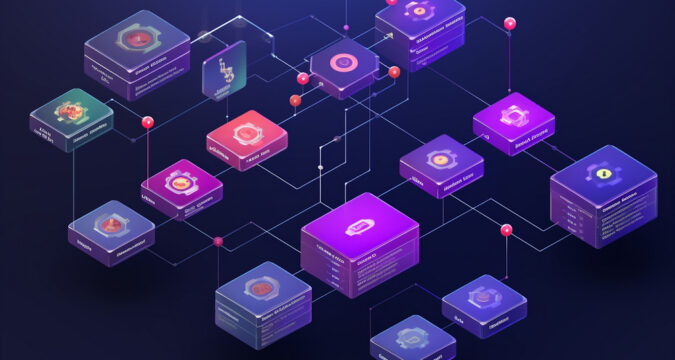
Introducing The AggLayer Protocol
Prominent Ethereum Layer-2 scaling solutions provider Polygon Labs is set to introduce a groundbreaking protocol to bridge the present gaps in the blockchain technology ecosystem. AggLayer, the cutting-edge solution from Polygon Labs, will debut in February.
This solution will be a comprehensive network that seamlessly connects different blockchains, resulting in a unified experience akin to a single chain. Moreover, AggLayer will utilize zero-knowledge proofs (ZK-proofs) from various blockchains.
This strategy facilitates the link between layer 1 and layer 2 blockchains, forming a unified network. Also, this solution aims to create a more streamlined and integrated environment and eliminate the apparent divisions within the blockchain ecosystem.
Polygon Labs anticipates an improved user experience for AggLayer, comparing it to the ease of use provided by the internet. According to the developers, users can move across chains using this protocol, eliminating the need for bridges – a time-consuming process.
This seamless integration will make blockchain technology more accessible and user-friendly, furthering the larger goal of simplifying the adoption of decentralized systems.
AggLayer’s Use Case
Here’s an illustration of how this protocol works: a user on Ethereum’s layer-2 chain, X1, possesses the cryptocurrency Dai. However, the user wants to buy an NFT on Polygon’s ZK Ethereum Virtual Machine (zkEVM) before connecting their decentralized autonomous infrastructure (DAI) address to the zkEVM. The AggLayer protocol can facilitate this process seamlessly.
Per this user’s perspective, this procedure is a flawless reflection of using a single chain. The user does not need to be burdened by the intricacies of accessing a distinct blockchain to interact with decentralized applications (dApps).
Furthermore, Polygon Labs aims to create a unified and highly scalable network with a user-centric design that aligns with that objective. Polygon Labs believes the currently available blockchains are fragmented and lack interoperability, resulting in unsatisfactory user experiences and scalability difficulties. According to the developers, AggLayer will improve the monolithic and modular blockchain systems that are widely in use currently.
Integrating Monolithic And Modular Blockchains
Distinguishing between monolithic and modular blockchains provides valuable information on the architectural evolution of blockchain networks. Monolithic blockchains, embodied by Bitcoin, combine functionality such as transactions, settlements, and data availability on a single layer.
In contrast, modular chains, such as the post-Merge Ethereum, divide these tasks among layers to optimize operational efficiency. Polygon Labs states that AggLayer is a breakthrough synthesis that combines the strengths of integrated (monolithic) and modular systems using ZK technology.
The upcoming release of AggLayer’s first version in February marks an important milestone in the blockchain arena. This version is designed to demonstrate the revolutionary power of aggregation in smoothly uniting features.
Furthermore, Polygon Labs has big plans for a second version later this year, promising to expand AggLayer’s capabilities by enabling asynchronous cross-chain transactions. Thus, this upgrade is a significant step toward creating a more adaptable blockchain ecosystem.




